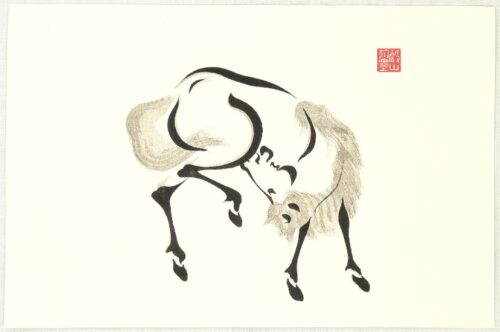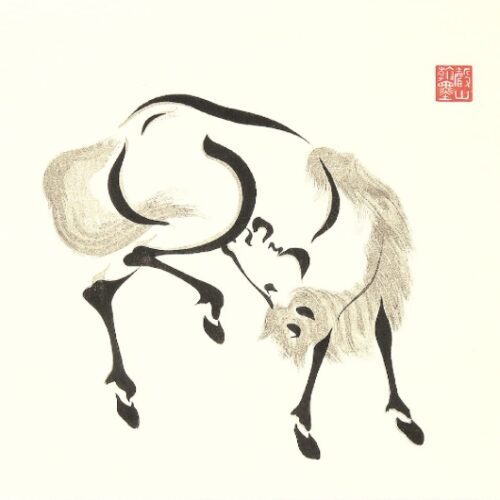
Aoyama Seizan, Seizan Zen Horse, 1920’s, Artelino Japanese prints
There are days of being a bad horse
– a stubborn ill-mannered disobedient bad horse
My mind wanders and escapes
all attempts to focus on a task
My limbs seem to work separately from my brain
and separately from one another
I smash the car
I swear at other drivers
I resist turning the light off to go to sleep
then I crash on the couch at midday
I pity myself for long hours
and seek revenge against passers-by
I do everything but what I should
I mumble and turn up late
I’m not sure I get this Zen preference
for bad horses…
or is it that you have to reach
complete acceptance?
accept that some days
you’re just being a bad horse
and you wish you weren’t
but you show mercy
“In our scriptures (Samyuktagama Sutra, volume 33), it is said that there are four kinds of horses: excellent ones, good ones, poor ones and bad ones. The best horse will run slow and fast, right and left, at the driver’s will, before it sees the shadow of the whip; the second best will run as well as the first one does, just before the whip reaches its skin; the third one will run when it feels pain on its body; the fourth will run after the pain penetrates to the marrow of its bones. You can imagine how difficult it is for the fourth one to learn how to run!
When we hear the story, almost all of us want to be the best horse. If it is impossible to be the best one, we want to be the second best.
(…)
When you consider the mercy of Buddha, how do you think Buddha will feel about the four kinds of horses? He will have more sympathy for the worst one than for the best one.
When you are determined to practice zazen with the great mind of Buddha, you will find the worst horse is the most valuable. In your very imperfections you will find the basis for your firm, way-seeking mind.”
Shunryu Suzuki, Zen Mind Beginner’s mind



